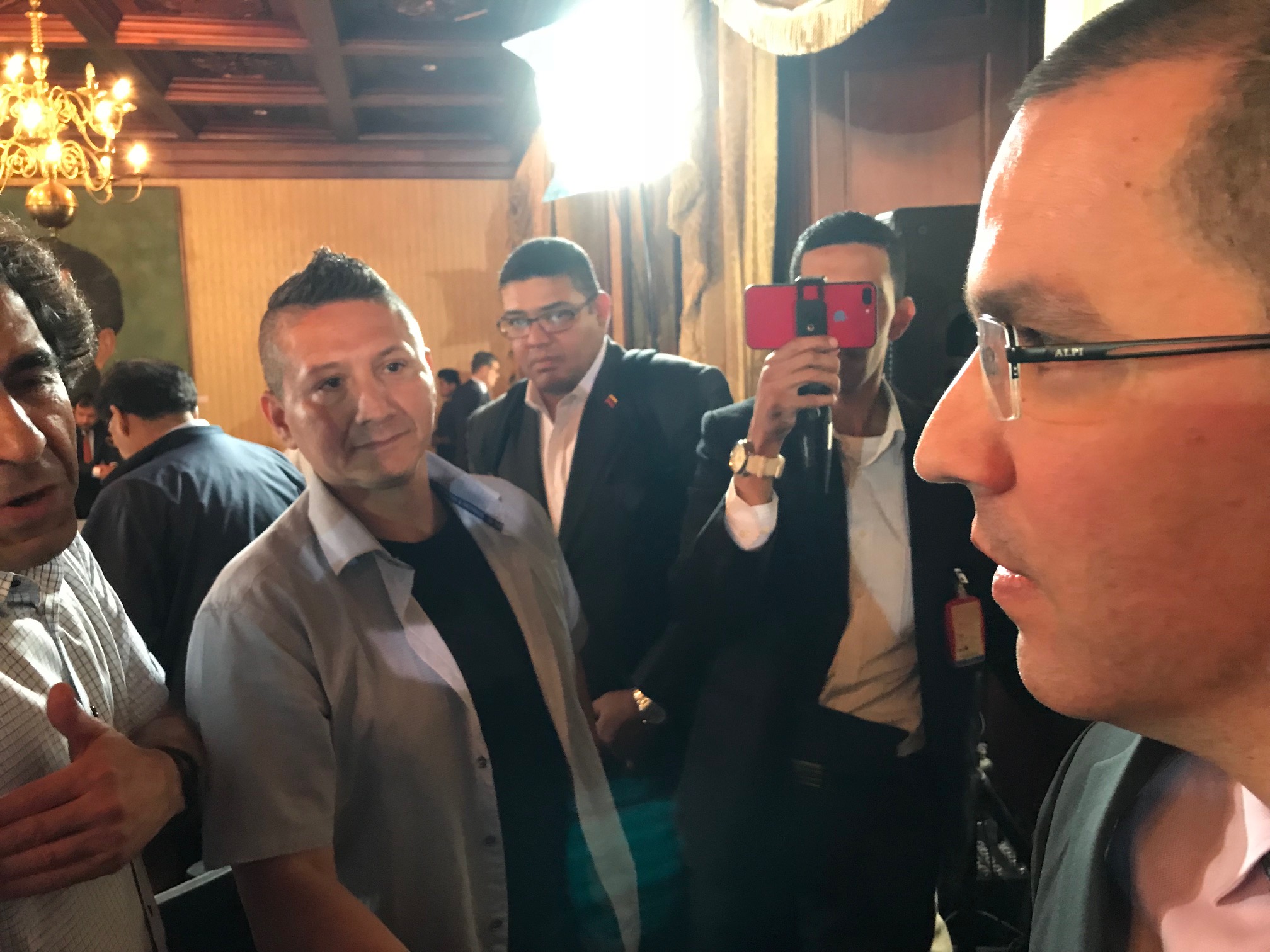Friday was full immersion into Venezuelan politics. With voting on Sunday, campaigning ended Thursday. But the billboards are still up, and the vote is a topic in every conversation.
In a meeting with Venezuela’s foreign minister, Jorge Arreaza (shown at right with Canadian observers in the photo above), he compared this campaign to current elections in Colombia and Mexico. Colombia, he said, is nearing the end of 60 years of civil war. At least 170 social movement leaders were killed in 2017, plus 19 demobilized guerrillas murdered since September 2016. In Mexico, at least 94 candidates have been assassinated this year.
In Venezuela: “We have no incidents to lament, no fatalities to grieve,” said Arreaza.
His words reminded me of some conversations that my NGO and labour friends and I have had with officials of Global Affairs Canada. When we talk about human rights violations in Colombia, Mexico and Honduras, they respond by talking about Venezuela — which by any objective measure has a better human rights record than any of those three.
Canada’s anti-Venezuela attitude carried over to a decision this week not to allow Venezuelans in Canada to vote in their country’s consulates. The technical reason given for the Canadian decision was that Venezuela was a day late in seeking permission, but Arreaza called the action “hostile.”
In an interview Friday evening on Radio Miraflores, I was asked about the Canadian government’s attitude towards Venezuela and the decision about the consulates. I expressed my regret, and said I think it has to do with the influence of Canadian oil, gas and mining interests: those companies liked the way things used to work here, and want easier access to the oil and gold beneath Venezuelan soil.
Inability to see Venezuela objectively is not just a problem with the Canadian government: it is also expressed in most international media. This election is presented more often than not as an illegal or illegitimate electoral process.
This characterization comes from that alliance of local and international elites that seeks always to protect economic and political power from changes that would advance the common good. It relies on a certain interpretation of democracy, freedom and human rights. Any process that attempts to change the status quo, that puts limits on local elites or tries to create forms of democracy that are different from the sort of democracy that protects their power: those are deemed failures or anti-democratic.
Similar criticism is directed at centre-left politicians like Gustavo Petro and Andres Manuel Lopez Obrador, who are running (respectively) to be presidents of Colombia and Mexico.
Since December 1998, when Hugo Chavez was first elected, through the 2002 coup attempt and 2004 revocation referendum and more intensely since the death of Chavez in 2013, the idea is nurtured that Venezuela is a failed state or a dictatorship that attacks human rights and imprisons political opponents. Recently, it is said that Venezuela is suffering from a humanitarian crisis that urgently requires intervention.
These past few weeks, media reports are full of reports of new U.S. sanctions, and even threats of military intervention. The out-going president of Colombia, Juan Manuel Santos, told an audience in Hungary that “regime change” in Venezuela was coming soon.
In a recent post, Venezuelanalysis said that if Nicolas Maduro wins on Sunday, the United States and its allies will not accept the results. This would mean more sanctions, which exact a significant toll on the well-being of the people. But if the opposition wins, then watch for “shock doctrine” measures – dismantling of the achievements of the past 20 years, massive public spending cuts, and a return of the international bankers.
Jim Hodgson is an election observer from the United Church of Canada.



